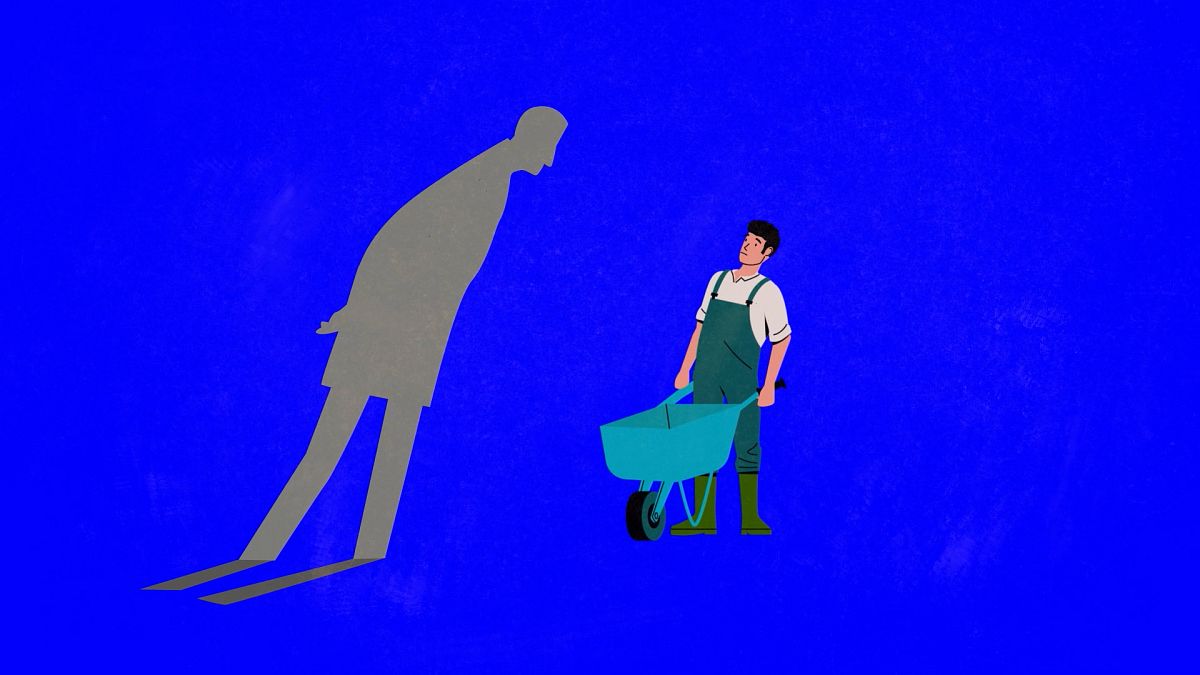Europe
Brussels wants to strengthen the bargaining power of farmers

The Delicate Balance Between Farmers and Retailers in Setting Grocery Prices
The prices we pay for groceries are not arbitrary but are the result of complex negotiations between large retailers and farmers. These negotiations often pit the interests of powerful corporations against those of individual farmers, many of whom feel undervalued and exploited. Farmers frequently express frustration over being pressured to sell their products at prices that do not reflect the true cost of production or the effort they invest in cultivating their goods. This imbalance in bargaining power has become a recurring issue in the agricultural sector, with farmers often feeling taken advantage of by major retailers who wield significant influence over the supply chain.
EU Proposals to Empower Farmers and Ensure Fairness
In an effort to address these disparities, the European Union Commission has introduced several proposals aimed at strengthening the bargaining power of farmers. These measures are designed to create a more equitable system where farmers can negotiate on a level playing field with large retailers. One key aspect of the proposal is the stricter enforcement of existing rules that penalize unfair practices such as late payments, last-minute cancellations of orders for perishable goods, and unilateral changes to contracts. Additionally, the Commission aims to prevent commercial retaliation by powerful buyers against farmers who seek to assert their rights. By addressing these issues, the initiative hopes to ensure that hardworking farmers receive the fair compensation they deserve for their products.
The Role of Farmers in Europe’s Food Supply Chain
Farmers play a vital role in Europe’s food supply chain, yet the agricultural sector has undergone significant changes in recent years. There are approximately nine million farms operating within the EU, a number that has declined by more than five million since 2005. This reduction highlights the challenges faced by farmers in maintaining their livelihoods in an increasingly competitive and industrialized market. Furthermore, nearly two-thirds of these farms are small-scale operations, covering less than five hectares of land. Despite their smaller size, these farms are crucial to the overall food production system in Europe, contributing to the diversity and resilience of the agricultural sector. The EU’s agricultural land covers 157 million hectares, which accounts for 38% of the total land area of the EU, underscoring the importance of farming to the continent’s economy and environment.
The Struggles of Small-Scale Farmers in the EU
Small-scale farmers, in particular, face numerous challenges in the current market environment. Many of these farmers operate on thin profit margins, making them vulnerable to fluctuations in commodity prices and rising input costs. The dominance of a few large companies on the buyer side further exacerbates the imbalance in power, leaving small-scale farmers with limited negotiating power. This dynamic often forces farmers to accept lower prices for their products, which can make it difficult to sustain their operations. The proposed measures by the EU Commission are intended to address these inequities by providing farmers with greater protection and bargaining power, enabling them to compete more effectively in the market.
The Economic Pressures Facing European Farmers
Another significant concern for European farmers is the increasing cost of essential inputs such as fertilizers and pesticides. These rising costs have further squeezed the already tight profit margins of farmers, making it more challenging for them to maintain their operations without sacrificing the quality of their products. The higher cost of production inevitably trickles down to consumers, contributing to the overall increase in grocery prices. However, many farmers feel that they are not adequately compensated for these increased expenses, leading to growing frustration within the agricultural community. The EU’s initiative to strengthen farmers’ bargaining power is seen as a potential solution to this problem, but it remains to be seen whether these measures will have a meaningful impact on the ground.
The Potential Impact of the EU’s Initiative on Farmers
The EU Commission’s proposal to enhance the bargaining power of farmers and enforce stricter penalties for unfair practices has been met with a mix of hope and skepticism. Many farmers and agricultural organizations view the initiative as a step in the right direction, as it addresses some of the most pressing issues they face in their dealings with large retailers. However, there are also concerns about the practical implementation of these measures and whether they will be sufficient to create a more equitable system. The success of the initiative will depend on the willingness of member states to enforce the rules consistently and the ability of farmers to organize and advocate for their interests collectively. If successful, the measures could pave the way for a more sustainable and fair food supply chain that benefits both farmers and consumers.
Conclusion: The Fight for Fairness in the Agricultural Sector
The fight for fairness in the agricultural sector is far from over, but the EU Commission’s proposals represent a significant step toward addressing the inequities faced by farmers. By strengthening their bargaining power and protecting them from exploitative practices, the initiative aims to create a more balanced and sustainable food supply chain. While the challenges ahead are substantial, the determination of farmers and the support of policymakers offer a glimmer of hope for a future where farmers are valued and compensated fairly for their contributions to the food system. Ultimately, ensuring the well-being of farmers is not only a matter of economic justice but also a critical component of food security and sustainability in Europe.